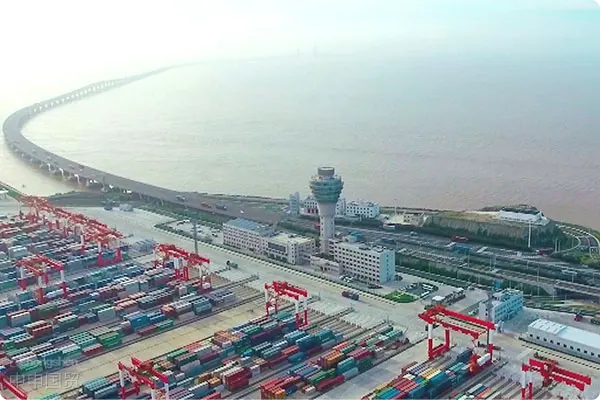- Shanghai Zhongshen International Trade Co., Ltd. - Two decades of trade agency expertise.
- Service Hotline: 139 1787 2118

This article provides a detailed introduction to the agency services for exporting electrical appliances to South Korea, including industry analysis, operational procedures, and key considerations.foreign tradeA summary of key contract terms to help you successfully explore overseas business opportunities!
With the continuous development of the global economy, more and more enterprises are entering the field of international trade. South Korea, as one of the important economies in Asia, has a growing demand for electrical appliances. Therefore, the agency services for exporting electrical appliances to South Korea have become a focus for many enterprises. This article will provide a detailed introduction to the relevant content of exporting electrical appliances to South Korea through agency services.
I. Industry Conditions
According to data from market research institutions, the South Korean electrical appliance market has been expanding in recent years and is expected to maintain steady growth in the coming years. Among them, consumer electronics such as smartphones, tablets, and TVs are the main products in demand in the South Korean market. Additionally, the demand for energy-saving and environmentally friendly electrical appliances in South Korea is also increasing.
The Concept of Exporting Electrical Appliances to South Korea Through Agency Services
Exporting electrical appliances to South Korea through agency services refers to a trade method where enterprises collaborate with South Korean agents to export their electrical appliances to the South Korean market. Agents typically have rich market experience and resources, helping enterprises to explore the South Korean market, promote products, and provide after-sales services.
Market Research
1. Finding the Right Agent: Enterprises can find suitable agents by participating in trade fairs, conducting online searches, or consulting professional agencies. When selecting an agent, factors such as the agents reputation, capabilities, market experience, and service quality should be considered.
2. Sign an Agency Contract: Enterprises and agents sign an agency contract to clarify the rights and obligations of both parties. The contract typically includes the agency region, products, duration, pricing policy, sales targets, after-sales services, and other details.
3. Product Preparation: Enterprises need to adjust and optimize products according to the demands and standards of the South Korean market. Additionally, relevant product certifications and test reports must be prepared to ensure compliance with South Korean market requirements.
4. Market Promotion: Agents are responsible for promoting and selling products in the South Korean market. Enterprises can collaborate with agents to develop market promotion plans, including advertising campaigns, promotional activities, and participation in trade fairs.
5. Order processing: After receiving customer orders, agents forward the order information to the enterprise. The enterprise organizes production and shipment based on the order requirements.
6. After - sales Service: Agents are responsible for providing after-sales services to customers, including product repairs, returns, and exchanges. Enterprises need to collaborate with agents to establish a comprehensive after-sales service system to enhance customer satisfaction.
IV. Precautions
1. Understanding the South Korean Market: Before exporting electrical appliances to South Korea, enterprises need to thoroughly understand the market demands, competition, and legal regulations in South Korea. Relevant information can be obtained through market research or consulting professional agencies.
2. Select suitable agents: Agents are crucial partners for enterprises to explore the South Korean market, so selecting the right agent is essential. When choosing an agent, factors such as the agents reputation, capabilities, market experience, and service quality should be considered.
3. Product Quality and Certification: The South Korean market has high requirements for product quality and certification, so enterprises must ensure their products meet these standards. Applying for relevant certifications and test reports can enhance product competitiveness.
4. Price policy: Enterprises need to establish reasonable pricing policies, considering both product costs and profits, as well as market competition and customer demands. They can negotiate with agents to develop suitable pricing strategies.
5. Contract terms: Before signing an agency contract, enterprises must carefully review the contract terms to ensure the content aligns with the interests of both parties. The contract typically includes the agency region, products, duration, pricing policy, sales targets, after-sales services, and other details.
6. Risk Management: Exporting electrical appliances to South Korea through agency services involves certain risks, such as market risks, credit risks, and legal risks. Enterprises need to implement corresponding risk management measures, such as conducting thorough market research, establishing credit evaluation systems, and signing insurance contracts.
Key Content of Foreign Trade Contracts
1. Parties to the Contract: Clearly define Party A and Party B in the contract, i.e., the exporting enterprise and the agent.
2. Agency Products: Provide a detailed list of the names, specifications, models, and quantities of the agency products.
3. Agent Territory: Clearly define the agents authorized territory, specifying the regions where the agent can sell the products.
4. Agent Term: Clearly define the agents term, specifying the time period during which the agent can sell the products.
5. Price policy: Clearly define the pricing policy for the products, including price composition, price adjustment mechanisms, and preferential pricing policies.
6. Sales Target: Clearly define the agents sales targets, specifying the sales tasks the agent needs to complete within the term.
7. After - sales Service: Clearly define the agents after-sales service responsibilities, including the scope of after-sales services, service timelines, and associated costs.
8. Liability for Breach of Contract: Clearly define the liabilities for breach of contract, specifying the consequences for both parties in case of contract violations.
9. Dispute Resolution: Clearly define the dispute resolution methods, including negotiation, arbitration, and litigation.
10. Other Terms: Include the conditions for the contracts validity, amendments and termination clauses, and confidentiality agreements.
VI. Summary
Related Recommendations
? 2025. All Rights Reserved. 滬ICP備2023007705號-2  PSB Record: Shanghai No.31011502009912
PSB Record: Shanghai No.31011502009912










